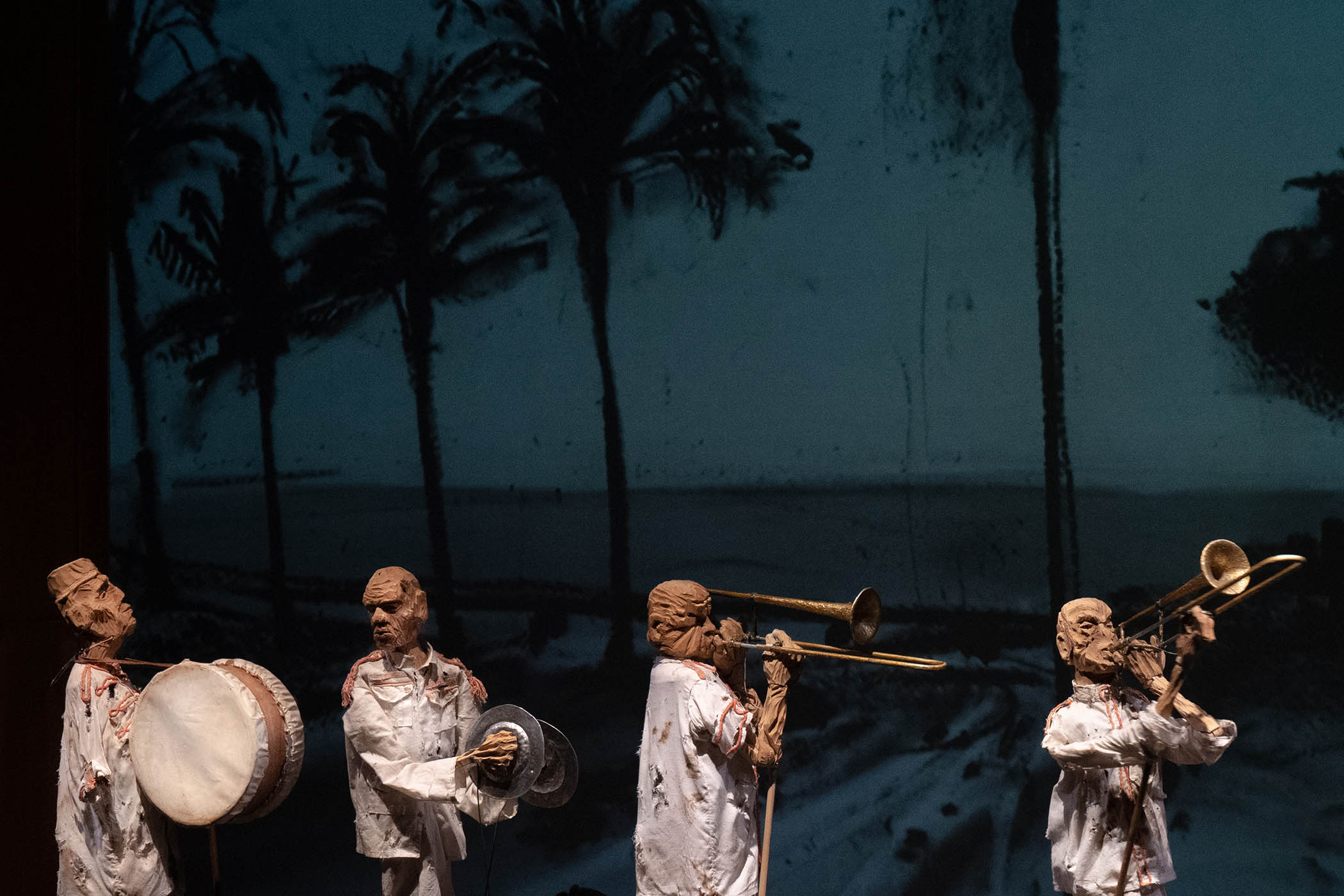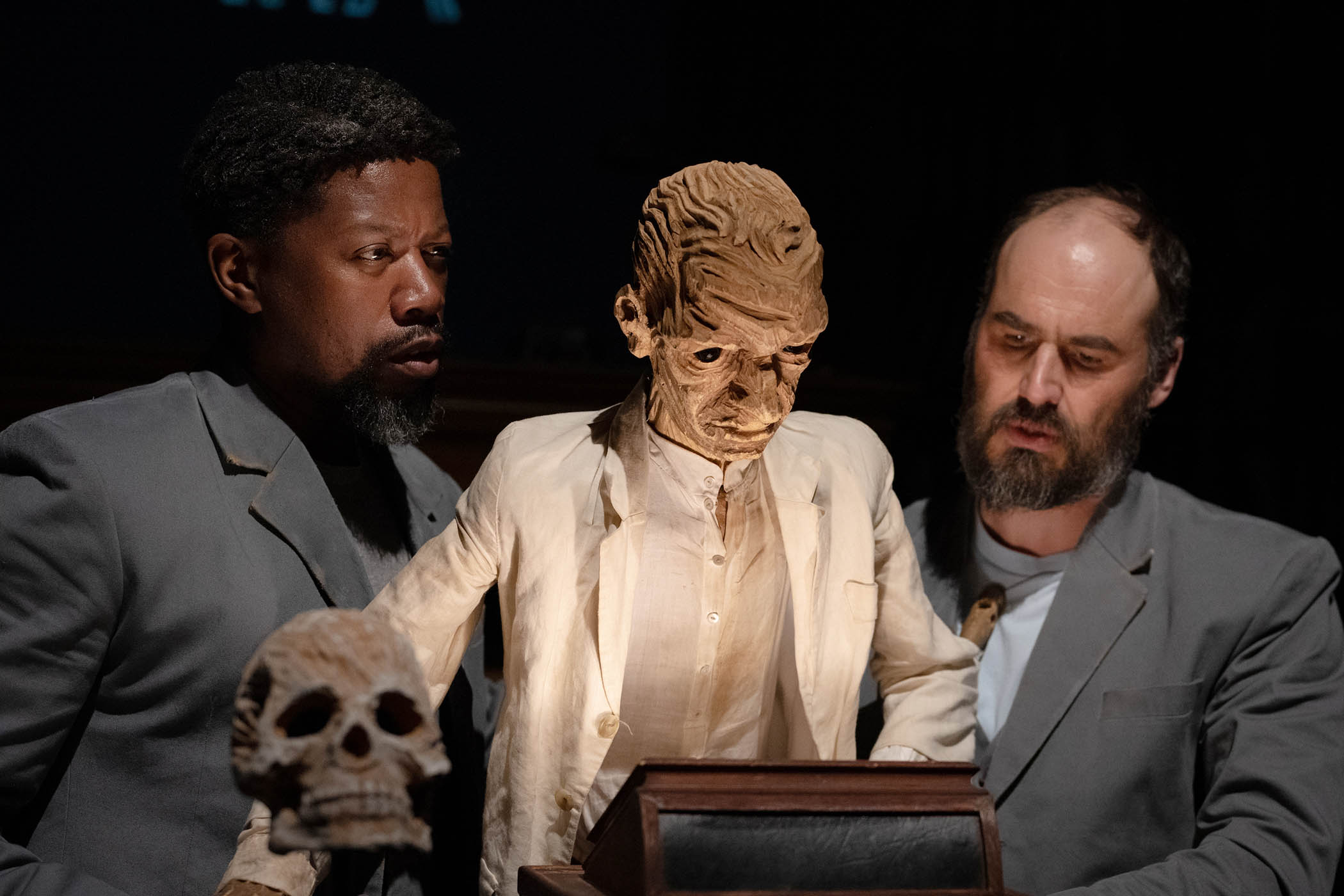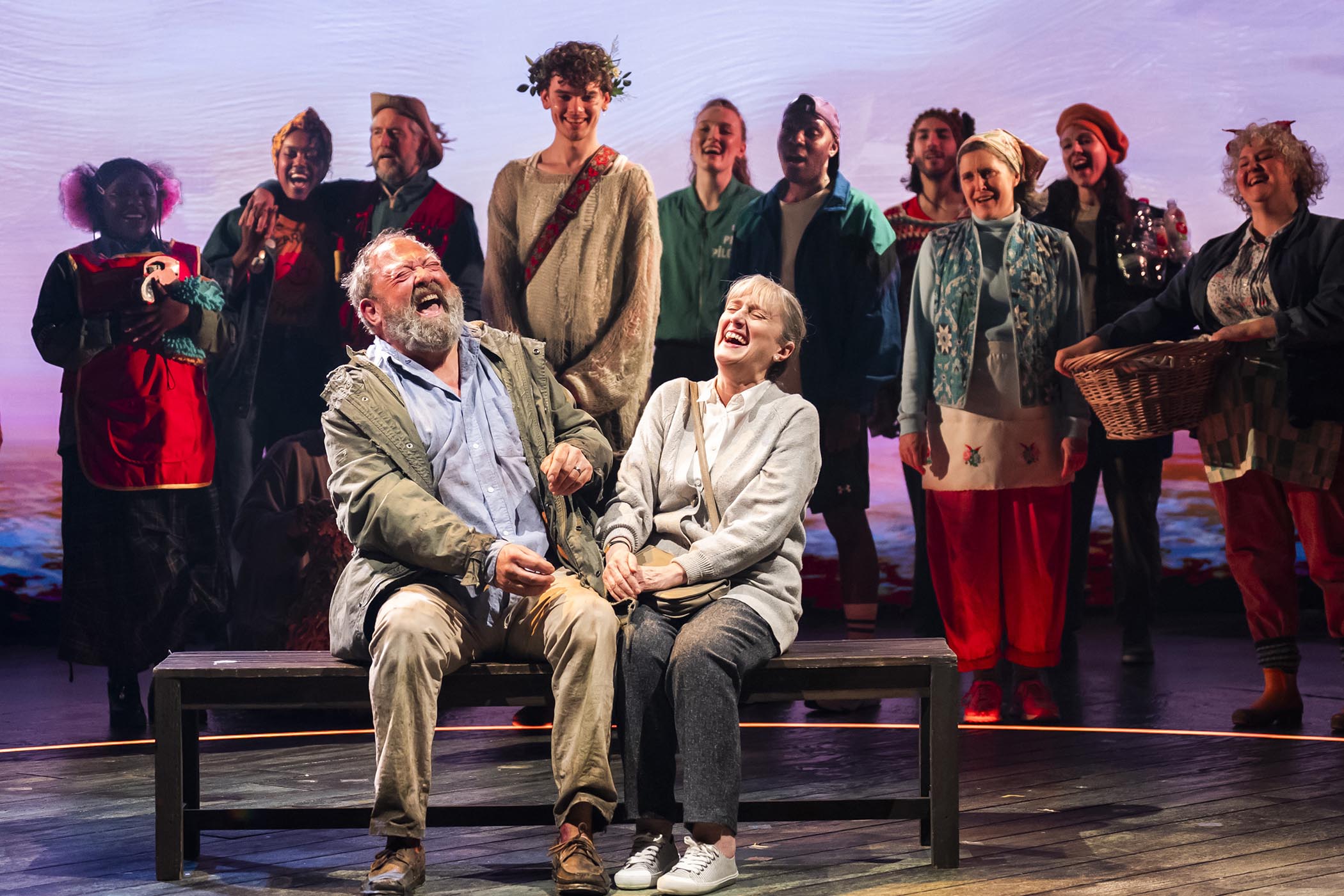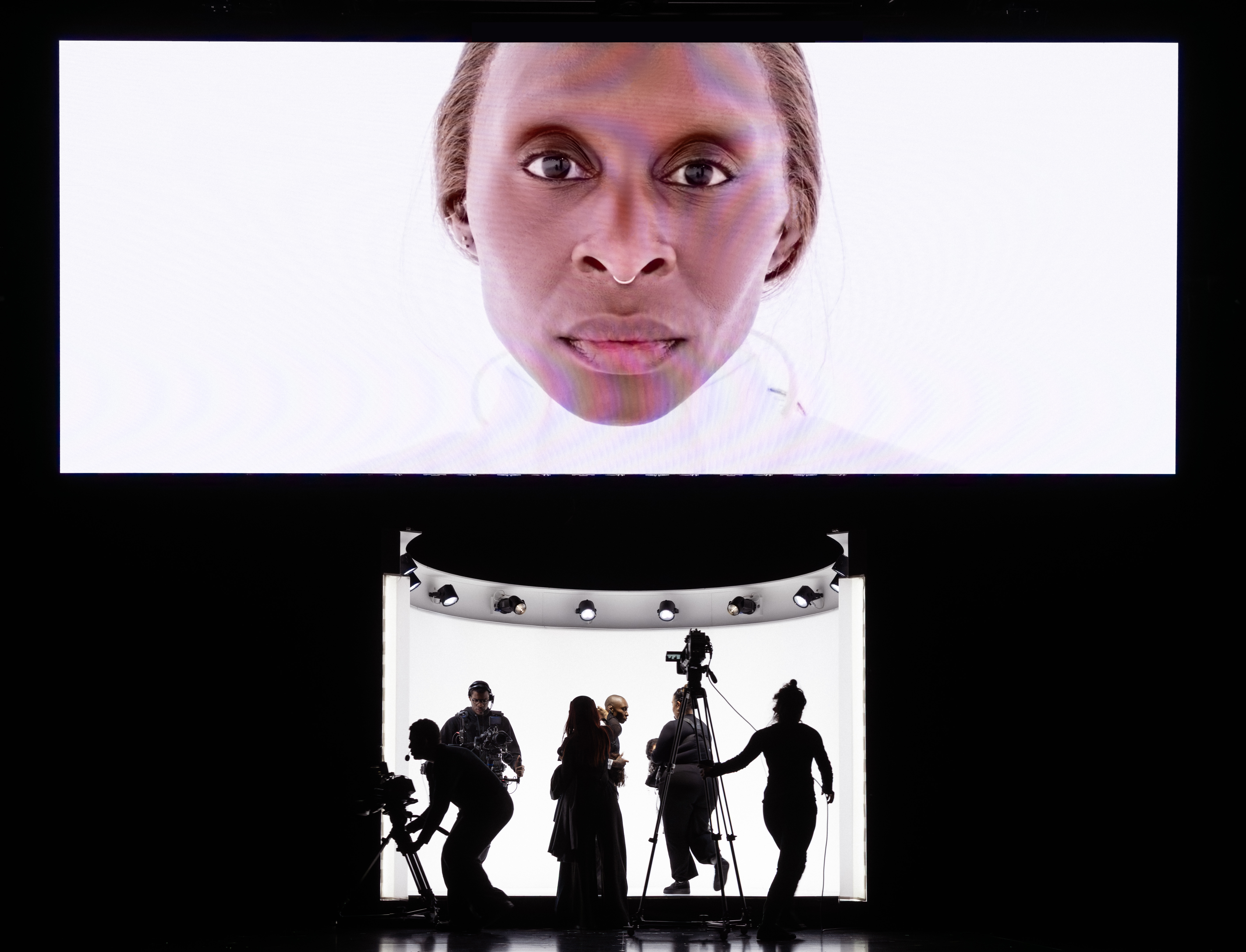Going into the Coronet in Notting Hill Gate, west London, is like being immersed in a Punchdrunk theatre company show. Normal time is stalled. Inside is dusky light, baffling corridors with bemused queues unsure if they are headed for the ladies or the stage, a bar with night lights and kilims. A display case contains an ancient programme advertising an appearance by Ellen Terry and domestic oddments at the Orridge’s Stores in the high street.
In the red and gold auditorium, Faustus in Africa! lands as urgent but muffled news from afar. An explosion of graphic imagination, a thunderous message, a miasmic narrative. Director, designer and animator William Kentridge is a one-man whirligig of talent: a maker of opera, drawings, tapestries and murals. He has collaborated with the magnificent South African puppet company, Handspring, who transformed the UK’s attitude to theatre and street performance with their large-scale creatures, showing audiences for War Horse and Little Amal that puppets can wrench the heart with expressiveness.
In this London premiere, they are reprising a production first staged in 1995, after the African National Congress had reached a negotiated settlement with the nationalist government in South Africa. The script is based on the late Robert David MacDonald’s translation of Goethe’s Faust, with additional texts by the South African poet Lesego Rampolokeng and some revisions by Lara Foot.
The talent is evident. So, ultimately, is the message: that the new leaders of a continent pillaged by colonisers (Faust has many ravaging faces) and laid waste by climate catastrophe will find themselves obliged to collaborate with their destroyers. Even Mephisto gets roped in as a useful ally. As for the “plunderers; we need you to perform some cashflow wonders”. Still, for much of the evening Faust’s pact, his purpose and his development are bewildering. All the energy is visual.
Puppets make an acute point in a drama in which men are not in control of their lives but manipulated by supernatural powers (the voice of God is heard: she is a woman), colonial force and their own greed. These creatures – some 110cms (43in) high, with puppeteers in full view of the audience – are designed, as was the set, by Adrian Kohler, influenced by Bunraku puppeteers from Japan and Bamana puppeteers from Mali. They do not have the tender eloquence of Handspring’s larger puppets but transmit vividly. An orange hyena, with plywood limbs and stockinette sagging between his ribs, has huge teeth, like badly fitting dentures, fixed in a leer. A uniformed marching band blow and bang on trombones, cymbals and drum, so excited that members trip over each other. A beauty appears with sculpted Marcel waves and a bony chest; a missionary wears a pith helmet and long beard; Faust has a face like a walnut. Mephisto, besuited, slippery and gleeful, is the only human speaker.

A marching band moves across the stage before Kentridge’s own tremendous charcoal backdrop
Kentridge’s tremendous charcoal landscapes – palm trees and boughs from which hang bodies – appear on a screen behind the action, pulled along as if by an unseen hand. When Faust goes on safari through the continent of Africa, the scenery becomes a site of destruction as he reduces to smithereens hippopotamuses, birds, the busts of eminent men. Faces appear as screwed-up balls of charcoal strokes. A sly tribute is made to the great charcoal master Frank Auerbach, when one episode takes place in Auerbach’s Tavern in Dar es Salaam.
The same screen projects in scrawled detail the solid physical world in front of Faust: a giant desk, heavy box files, an enormous early 20th-century telephone exchange, a chair on casters. The vital clock that ticks down the minutes to doom sits above the stage, round and white like an eye: it has on it the brand name “Lucifer”. If only the script had the same lucid intensity.
In Bowness-on-Windermere, the Old Laundry theatre has announced it is changing its name to the Victoria Wood theatre. Wood – imagine the song she might have written about being preceded by a washing machine – was a trustee. “Bend me over backwards on my hostess trolley,” but who more worthy to be honoured than the author of The Ballad of Barry and Freda? Male playwrights and actors have been routinely recognised in this way but I could, offhand, think of only two theatres named after women: the Gillian Lynne in London and Guilford’s Yvonne Arnaud. Surely it is time not only for the Caryl Churchill and the Eileen Atkins, but for ditching the practice of giving toff-related titles to performance spaces.
The name is the only thing wrong with the Coronet.
Photographs by Fiona-MacPherson
Newsletters
Choose the newsletters you want to receive
View more
For information about how The Observer protects your data, read our Privacy Policy



